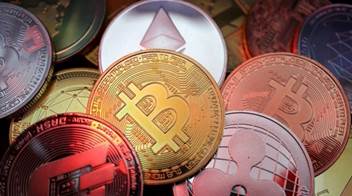Description

Disclaimer: Copyright infringement not intended.
Context
- Over seven per cent of India's population owns digital currency, according to the UN, which said that the use of cryptocurrency rose globally at an unprecedented rate during the COVID-19 pandemic.
What Is Digital Currency?
Digital Currency Benefits
- Faster payments.Using digital currency one can complete payments much faster than current means, which can take days for financial institutions to confirm a transaction.
- Less expensive international transfers.International currency transactions are very expensive; individuals are charged high fees to move funds from one country to another, especially when it involves currency conversions. Digital assets are disrupting this marketing by making it faster and less costly.
- 24/7 access.Existing money transfers often take more time during weekends and outside normal business hours because banks are closed and can’t confirm transactions. With digital currency, transactions work at the same speed 24 hours a day, seven days a week.
- Support for the unbanked and underbanked. With CBDC, unbanked individuals could access their money and pay their bills without extra charges.
- More efficient government payments. could send payments like tax refunds, child benefits and food stamps to people instantly, rather than trying to mail them a check or figure out prepaid debit cards.
- Dawn of decentralization: Decentralization provides financial freedom that can remain unaffected by the vicissitude of the banks and government. As there is no third-party involvement, it can offer more transparency and better transactional security. Networks built on blockchain do not require any trust or knowledge of others. Decentralized finance (Defi) as a system can easily replace the conventional financial processes for obvious reasons.
- Peer to peer transaction: ‘Save extra cost’, is the utmost persuading factor for all. Earlier, the presence of middlemen in the financial blockchain incurred extra cost on the transactions. The appeal of P2P is that one can transfer wealth or ownership of commodities without the involvement of a third party. A peer-to-peer transaction is transparent, secured and less complicated. In short, peer-to-peer transactions offer privacy and no additional cost on the transfer.
- Ease of use: The advent of digital currencies is paving the way for endless opportunities. The undebatable advantage of digital currencies is its ease of use. Having a smart device allows us to be your own bank and make transactions much easier and time saving.
- Fraud proof/ transparent: Digital currency is dedicated to focus on user privacy, so data breaches would be rare since it contains limited personal details. All transactions are encrypted between “digital wallets” and will result in an exact parity calculation on the ledger. Essentially, blockchain technology is poised to disrupt every aspect of our existence with this type of security.
- Global acceptance: Earlier, people had to pour in more money to send or receive payments across borders. By transcending global borders, digital currency promises flexibility and economic growth. Adding to the big picture, it also would be inexpensive, easy and fast. Digital currencies can boost trade and open up multiple opportunities to strengthen the financial health of the countries.
Digital Currency Disadvantages
- Too many currencies to navigate at the moment.The current popularity of cryptocurrency is actually a downside. There are so many digital currencies being created across different blockchains that all have their own limitations. It will take time to determine which digital currencies may be appropriate for certain use cases, including whether some are designed to scale for mass adoption.
- Takes effort to learn how to use them.Digital currencies require work on the part of the user to learn how to perform fundamental tasks, like how to open a digital wallet and properly store digital assets securely. For digital currencies to be more widely adopted, the system needs to get simpler.
- Blockchain transactions can be expensive.Cryptocurrencies use the blockchain, where computers must solve complex equations to verify and record transactions. This takes considerable electricity and gets more expensive as there are more transactions. These would probably not exist for a CBDC, however, since it would likely be controlled by the central bank and the complex consensus processes are not needed.
- Large swings in digital currency prices.Cryptocurrency prices and value can change suddenly. Cunha believes this is why businesses are reluctant to use it as a medium of exchange.

Future of Digital Currency
- By transcending global borders, digital currency promises flexibility and economic growth. Adding to the big picture, it also would be inexpensive, easy and fast.
- Digital currencies can boost trade and open up multiple opportunities to strengthen the financial health of the countries.













